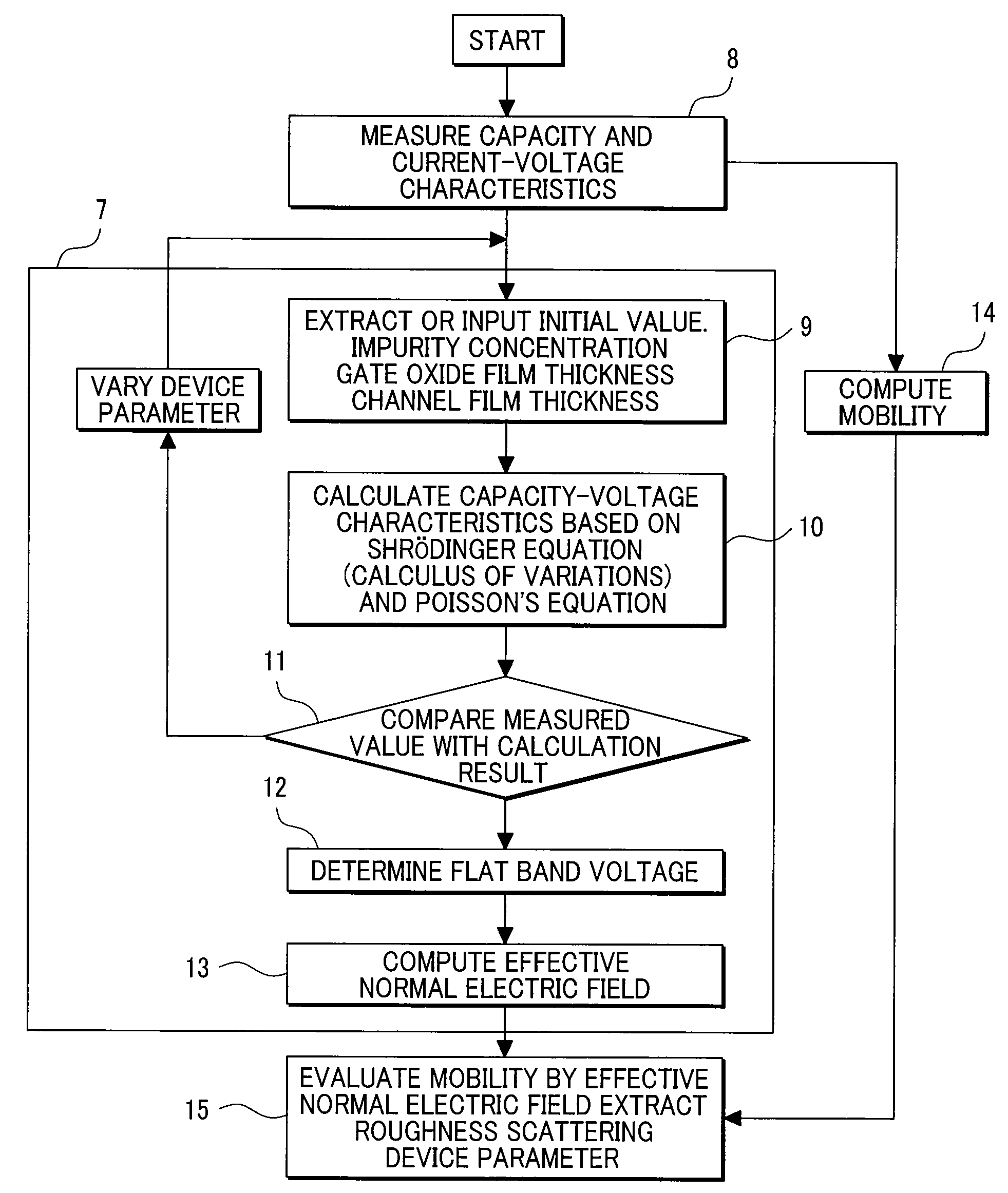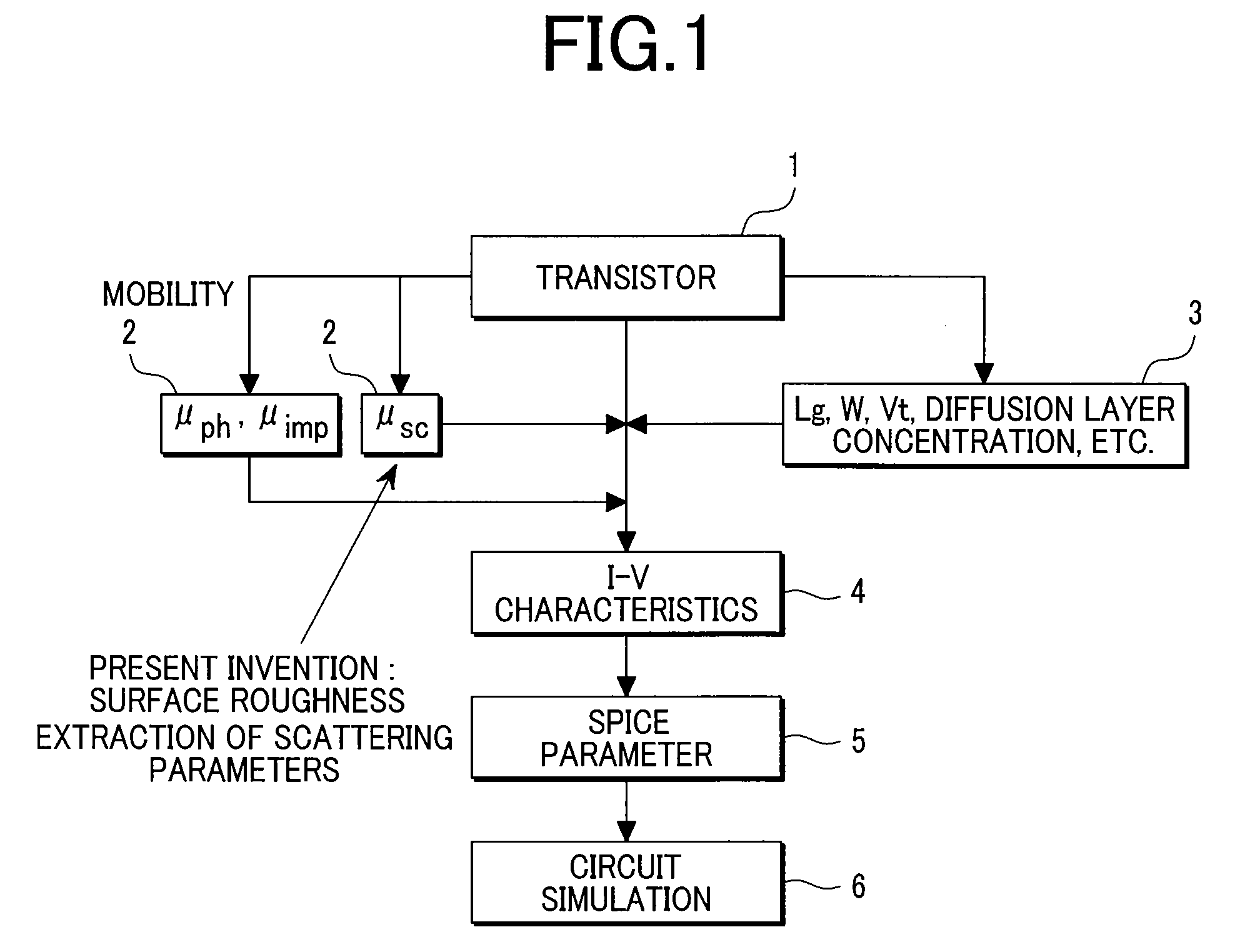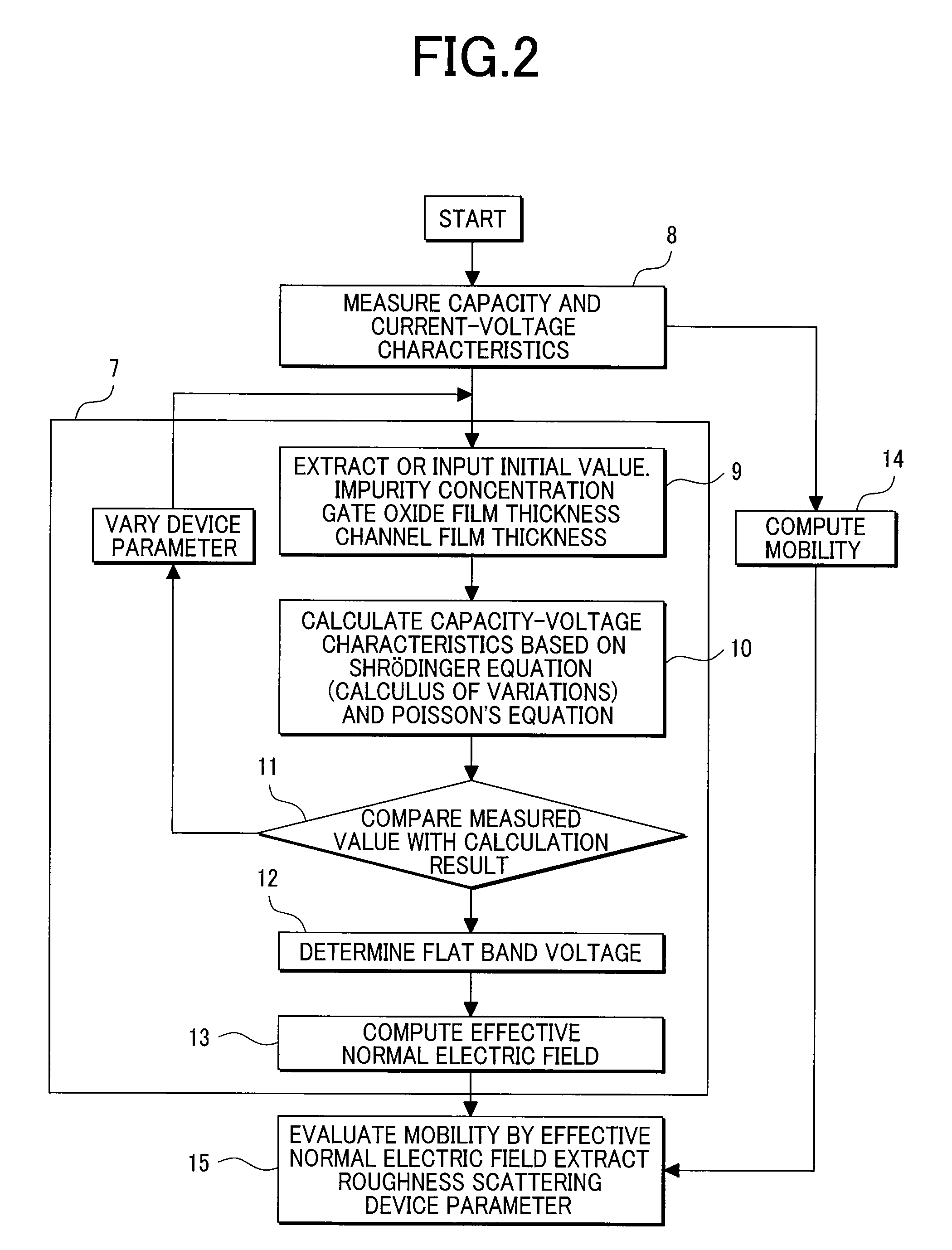Method for semiconductor circuit
- Summary
- Abstract
- Description
- Claims
- Application Information
AI Technical Summary
Benefits of technology
Problems solved by technology
Method used
Image
Examples
embodiment 1
[0098]An application of the present invention to an SOTB transistor, a kind of double gate transistors (n=2), will now be explained. FIG. 12 and FIG. 13 respectively illustrate a Silicon On Thin Buried Oxide (abbreviated to as “SOTB”) transistor. This transistor is a kind of Silicon On Insulator transistors where channel and silicon substrate are isolated by an insulation layer, and is characterized in that an insulating film on a back gate electrode side is as thin as 10 nm and that a channel is formed on a front gate side to utilize the back gate for control of V1. Therefore, only an effective normal electric field seen from the front gate side is extracted. Particularly, plane orientation of silicon in a direction normal to a gate is called a (100) plane.
[0099]Suppose that VG1 and Q1 are gate voltage and charge on the front gate side, VG2 and Q2 gate voltage and charge on the back gate side, Q0 channel charge, and Q1inv and Q1acc charge at an inversion layer and an accounting lay...
embodiment 2
[0117]For a transistor like the one shown in FIG. 7, which has three gates and a channel region thereof is in direct contact with a substrate, Fang-Howard variation wave function (Ψ(x)=Axe−λx, (0≦x≦∞) and a calculation method for a bulk transistor are applied, given that a voltage is impressed to a gate 16a of FIG. 7. On the other hand, if a voltage is impressed to a gate 16b, calculation methods explained in Eq. (46) and Eq. (47) for a double gate transistor are applied. In result, an equation for a current-voltage curve is obtained identically to Embodiment 1, and an operation waveform of a ring oscillator 51's inverters was reproduced.
embodiment 3
[0118]For a transistor having four gates like the one shown in FIG. 8, calculation methods explained in Eq. (46) and Eq. (47) for a double gate transistor are applied, provided that only voltage between two opposite gates is varied, and a flat band voltage is applied to the other gates. In addition, in case of applying voltages to four gates simultaneously, a wave function may be written as follows, obeying in Eq. (29):
ψ(x,y)=Ax(1-xtsi1)y(1-ytsi2)λ1x+λ2y(0≤x≤tsi10≤y≤tsi2)(50)
where tsi1 and tsi2 stand for distances between two opposite gates. Other parameters have the same meaning as those in Eq. (29). Substituting Eq. (17) into the following formula yields capacity at a j-th gate (j=0, 1, 2, 3, 4) or a channel:
Qj(VG1,VG2,VG3,VG4)=∫VFB1VG1V1∂Qj(V1,VFB2,VFB3,VFB4)∂V1+∫VFB2VG2V2∂Q1(VG1,V2,VFB3,VFB4)∂V2+∫VFB3VG3V3∂Qj(VG1,VG2,V3,VFB4)∂V3+∫VFB4VG4V4∂Q1(VG1,VG2,VG3,V4)∂V4(51)
[0119]In result, an equation for a current-voltage curve is obtained identically to Embodiment 1, and an operation w...
PUM
 Login to View More
Login to View More Abstract
Description
Claims
Application Information
 Login to View More
Login to View More - R&D
- Intellectual Property
- Life Sciences
- Materials
- Tech Scout
- Unparalleled Data Quality
- Higher Quality Content
- 60% Fewer Hallucinations
Browse by: Latest US Patents, China's latest patents, Technical Efficacy Thesaurus, Application Domain, Technology Topic, Popular Technical Reports.
© 2025 PatSnap. All rights reserved.Legal|Privacy policy|Modern Slavery Act Transparency Statement|Sitemap|About US| Contact US: help@patsnap.com



